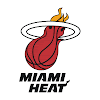Paul V. Galvin and his brother, Joseph E. Galvin, purchase a battery eliminator business in Chicago. In September 1928 they named the company Galvin Manufacturing Corporation.
Galvin Manufacturing Corporation's first product they develop is a battery eliminator which allows electronic devices to run on electricity rather than batter.
The name Motorola was given to Galvin’s first car stereo. ‘Motor’ stands for car and ‘ola’ stands for sound. From 1936 onwards, Galvin production lines dominate by manufacturing radios for cars and receivers up to 1947 where they produce their first television and the company name changes from Galvin Manufacturing Corporation to Motorola but then continue manufacturing communications mediums.
In 1967, Motorola expands into the follwing countries: Australia, Canada, France, Hong Kong, Israel, Italy, Japan, Malaysia, Mexico, Puerto Rico, South Korea, Taiwan, the United Kingdom and West Germany. In 1969, Motorola starts to supply the National American Space Agency (NASA) with radio equipment so astronaughts can communicate with their Earthly bases. The first man on the moon, Neil Armstrong communicated with Earth whilst on the Moon using a Motorola Radio.
In 1973, Motorola demo’s the world’s first cellular mobile phone, the DynaTAC which uses radio technology and is released in 1984. Motorola starts to combine both computer and radio technology to make the first cellular network which the DynaTAC operated on. Motorola began to make mobile handsets smaller and smaller. In 1996 Motorola released the StarTAC whiched weighed in at 88 grams (which is light even in this day and age).
In 2000 Motorola and General Instrument Corporation merged to enhance their services and in 2001 Motorola introduces the Motorola v60 phone the world first metal mobile phone which is available on the cellular networks GSM, TDMA and CDMA. In 2002 Motorola developed released a GPS chip that could be installed into consumer electronics to enable location positioning. Also Motorola released a 3G which is transmitted over CDMA network.
Finally, Motorola releases the Cross-Technology PoC product line that enables subscribers to have "push-to-talk" connectivity across and between GPRS, CDMA2000 1X, and WiFi networks and Motoroloa releases Ojo Personal Video Phone. Ojo promises broadband connectivity and a video phone that dosen’t break up which is commonly known with video phones.
Source: http://www.motorola-phones.com
Subscribe to:
Post Comments (Atom)















































0 comments:
Post a Comment